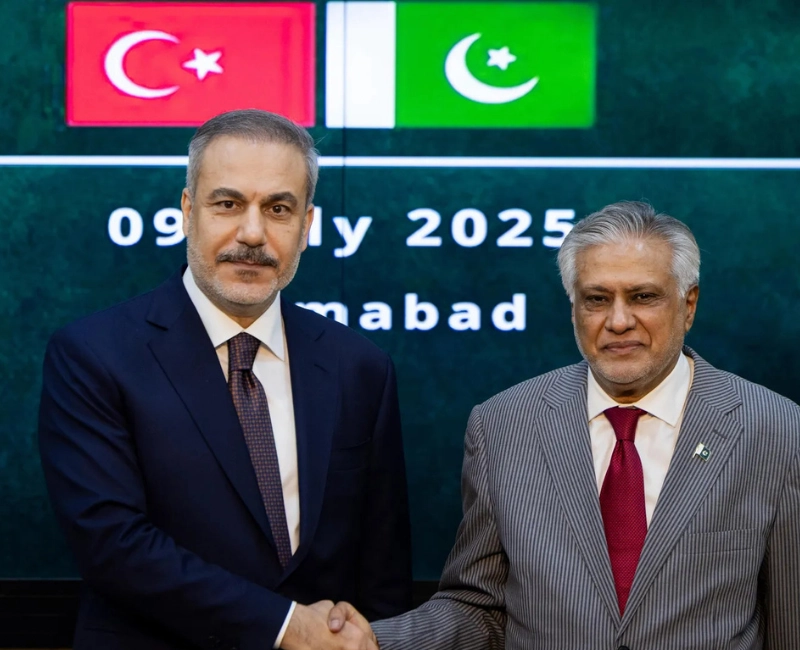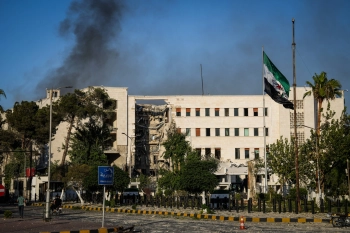ISTANBUL / ISLAMABAD — July 8, 2025 | GainEstates News
In a major stride toward deepening strategic and economic ties, Türkiye and Pakistan have signed a breakthrough agreement enabling joint offshore oil and gas exploration, marking a new chapter in bilateral cooperation with significant implications for regional investment and energy markets.
The announcement came during an official visit to Islamabad by Turkish Foreign Minister Hakan Fidan, who met with Pakistan’s Deputy Prime Minister and Foreign Minister Muhammad Ishaq Dar. The two leaders emphasized expanding cooperation not only in energy, but also across trade, infrastructure, defence, and private-sector investment.
Offshore Exploration Deal: A First in Bilateral Energy Ties
The core of the new partnership lies in an energy agreement between Turkish Petroleum Corporation (TPAO) and Pakistan’s national oil companies. The deal allows Turkish and Pakistani firms to jointly explore Pakistan’s offshore petroleum reserves—the first initiative of its kind in Turkish-Pakistani relations.
“This is one of the outcomes of the more institutionalised approach we are working to establish,” said FM Fidan. “We’re focused on sustainable, strategic collaboration in energy, mining, and rare earth development.”
This development signals Türkiye’s expanding energy diplomacy while offering Pakistan access to technical expertise, investment capital, and accelerated exploration timelines.
Bilateral Trade Target: $5 Billion
Both governments have set an ambitious goal of increasing bilateral trade to $5 billion, with sectors such as mining, renewable energy, oil and gas, logistics, and construction identified as priorities.
For investors, this signals an emerging trade corridor between two key economies in the Islamic world—one with high-growth potential and strong geopolitical alignment.
Special Economic Zone for Turkish Investors in Pakistan
Among the most notable outcomes for real estate and infrastructure stakeholders is the proposed creation of a Special Economic Zone (SEZ) for Turkish investors, to be developed in Karachi and potentially reciprocated in Istanbul.
“We are actively following up on benefiting from Turkish expertise in areas such as ship breaking, port logistics, and efficient use of agricultural water,” said Deputy PM Dar.
The SEZ aims to attract Turkish developers, logistics firms, and manufacturers looking to establish a footprint in South Asia’s second-largest economy. For Turkish construction and infrastructure firms, this opens the door to turnkey development, energy plant construction, and logistics park investment.
Energy Sector Privatisation: New Opportunities for Turkish Firms
Pakistan’s ongoing energy reforms have also drawn interest from Turkish firms, with Dar confirming that Turkish companies will be invited to participate in the privatisation of electricity distribution companies.
This move could create long-term operational and construction contracts, offering lucrative opportunities for Turkish EPCs and energy investors.
Defence and Strategic Infrastructure Collaboration
The leaders also confirmed plans to revive the Joint Ministerial Commission after more than a decade. Co-chaired by Pakistan’s Commerce Minister Jam Kamal and Türkiye’s Defence Minister Yaşar Güler, the commission will prepare for the Eighth High-Level Strategic Cooperation Council, scheduled for next year in Türkiye.
With defence industry cooperation growing—particularly in aerospace, cybersecurity, and military logistics—additional infrastructure and real estate projects tied to strategic zones may emerge as priorities in both countries.
Why It Matters for GainEstates Readers
For investors and developers, this agreement represents:
New energy sector access in South Asia
Potential real estate developments in bilateral SEZs
Privatisation opportunities in Pakistan’s power infrastructure
Construction and EPC prospects in logistics and defence sectors
Increased cross-border trade demand, impacting warehousing and industrial real estate
This partnership builds on a clear trend: Türkiye is expanding its economic influence via energy diplomacy and infrastructure alliances, with Pakistan emerging as a key partner.






